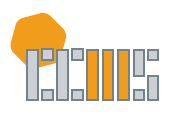Abstract / Synopsis
We argue that scholars and practitioners of mathematics education need to find new directions through recognition of its dystopic characteristics, and embrace these characteristics as both the source of challenges and method of response. This contrasts with the generally utopic approach of most scholarship in the field. We offer critical ethnomathematics education as a model, since it has its own origins in lingering dystopic legacies. A perpetual hopelessness and disempowerment is one implicit curriculum of contemporary mathematics education, where the mathematics one learns might help to describe things, yet hardly assists in transforming the reification of power and agency in society. Embracing dystopia rather than trying to circumvent it generates new questions and pathways.
DOI
10.5642/jhummath.SQEK5024
Recommended Citation
Peter Appelbaum, Charoula Stathopoulou & Constantinos Xenofontos, "Mathematics Education as Dystopia: A Future Beyond," Journal of Humanistic Mathematics, Volume 12 Issue 2 (July 2022), pages 518-538. DOI: 10.5642/jhummath.SQEK5024. Available at: https://scholarship.claremont.edu/jhm/vol12/iss2/30
Terms of Use & License Information
respond to proofs
Included in
Arts and Humanities Commons, Curriculum and Social Inquiry Commons, Mathematics Commons, Science and Mathematics Education Commons, Social and Philosophical Foundations of Education Commons
